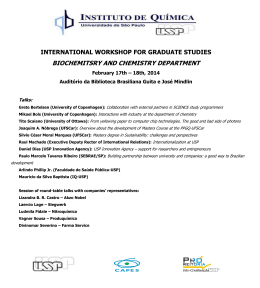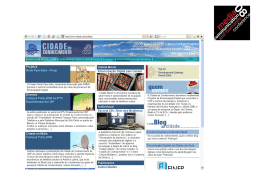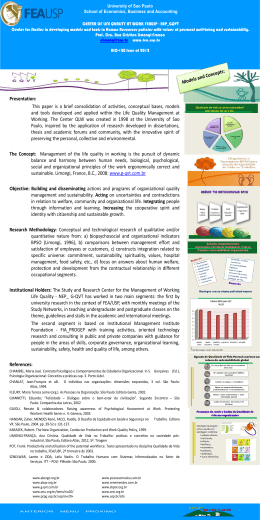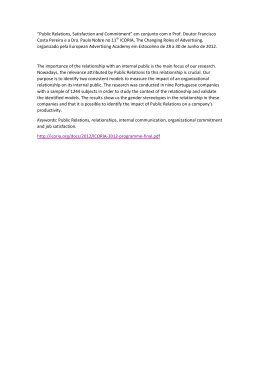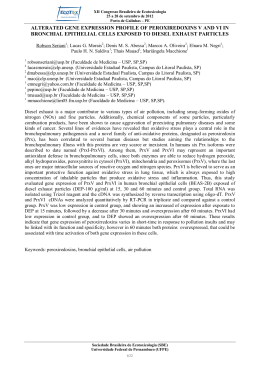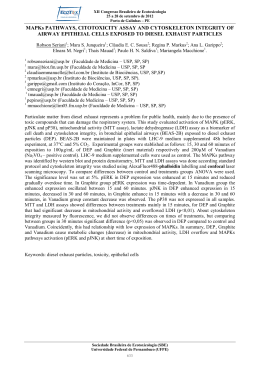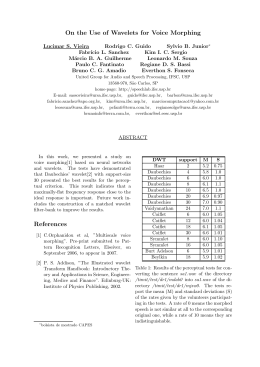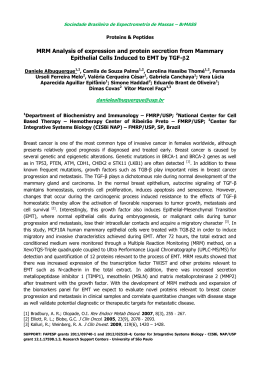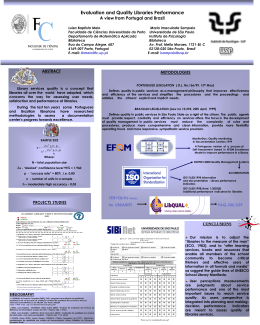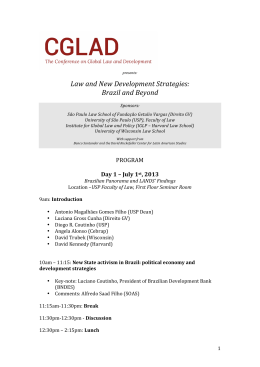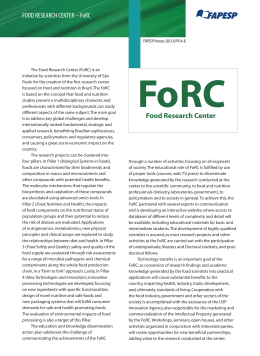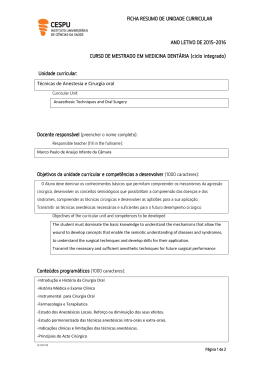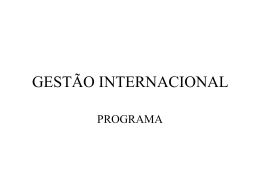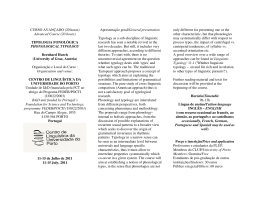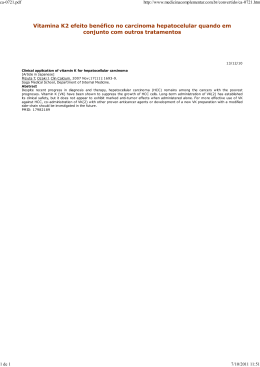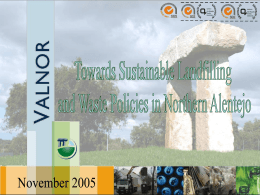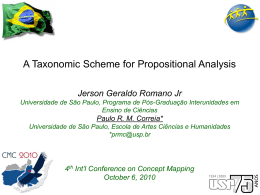19.5 SCHOOLS OF THOUGHT ON QUALITY OF WORK LIFE MANAGEMENT: an organizational typology proposal Ana Cristina Limongi-França [email protected] www.usp.br/fea Economic globalization, the new economics of the digital era, the new paradigms of organizational management, post-modernity of culture difficult union between quality of life and financial stability …..end up boosting complex actions, information exchange, virtual systems and a great number of ways of making survival possible with new characteristics of the ill-being of civilization. These facts cause new attitudes on companies and a consequent change on people’s way of living, continuously making room for the discussion and the search for quality of life within and outside the workplace. Capa Revista Inovação 1997 Observing any organizational environment leads to identifying a large amount of information related to quality of life. There is restlessness, both individual and collective, concerning pressure, conciliating expectations towards work, family and consuming, stress signals, eating habits and physical self-care, life styles, technological impacts. All of this tends towards the pursuit of physical well-being. This scenario of values and practices regarding Management of Quality of Work Life may be seen in a clear way especially through interfaces deriving from : the health field, benefits, personnel management, engineering of production, ergonomics, quality management systems, research, technological innovations, social balance, marketing, and socially responsible activities. The new complexity The variety of activities creates a diffusive complex that contains voids and overlaps. Such complex makes it difficult to spot the locus of decision on life quality related activities of programs in the companies and to the employees, family and comunity. (What is about tomorrow?) The typology of Schools of Thought on Quality of Work Life Management is used on three fundamental guidelines: 1. The Socioeconomic 2. The Organizational 3. The Human Condition at Work • development of citizenship; • responsibility and social projects; • equality with freedom; • environmental protection; • sustainable development. • extension of the processes of quality and productivity to that of personal quality; • policies of personnel management – valorization and qualification; • marketing – corporate and internal communication image; • free-time – cultural developments, habits of leisure and sports; • risk and challenge as factors for motivation and commitment. • The biological stratum refers to the physical characteristics inherited or acquired at birth or during the entire life. • The psychological stratum refers to the affective, emotional and conscious or unconscious reasoning processes. • The social stratum refers to the culture and the beliefs, the role of the family and the other forms of social organization in the work place. Foto Márcio Fernandes/Folha Imagem The idea of proposing a typology is to locate and understand the demands in the company environment, in the workplace and in the post-industrial society. Especially to assess data about effort in comparison with wellness of employees. Ana Cristina Limongi-França, associate professor São Paulo University www.fea.usp.br www.g-qvt.com.br [email protected] Tel: 55-11-30915908 Av. Mercedes, 1018 , São Paulo, SP 05081-060 Brazil Técnicas Conhecimento do Negócio Conjunto de técnicas para resolver as questões levantadas pelo tema/assunto Fatos ‘Estado da Arte’ Estratégia de Negócio Conjunto de procedimentos para atingir os objetivos estabelecidos Como se Lida: Estratégico Tático-operacional Aleatório Incidente E escolhas casuais The model of the investigation Escolas de Pensamento Socioeconômica Organizacional Condição Humana Estudos, Conceitos e Eventos QVT Nova Economia e Paradigmas Organizacionais Conjunto difuso de Informações Objeto Práticas e Percepções QVT Fatores Críticos Conceito QVT Produtividade Legitimidade Perfil do Administrador Práticas e Valores Objetivo Interface QVT e Administração Demandas Empresariais Hipótese Gestão Avançada QVT Resultado Gestão de Nova Competência GQVT
Download
